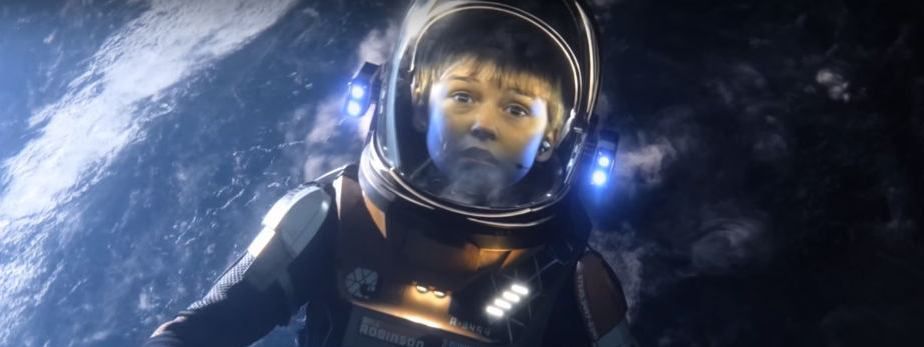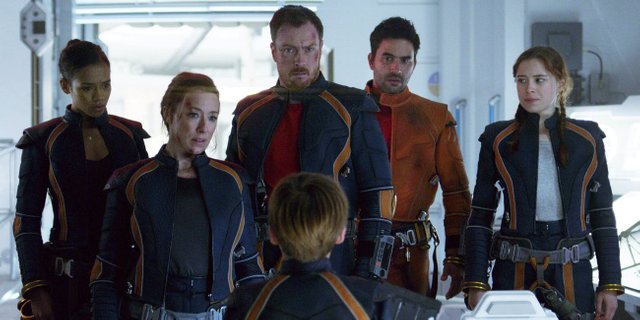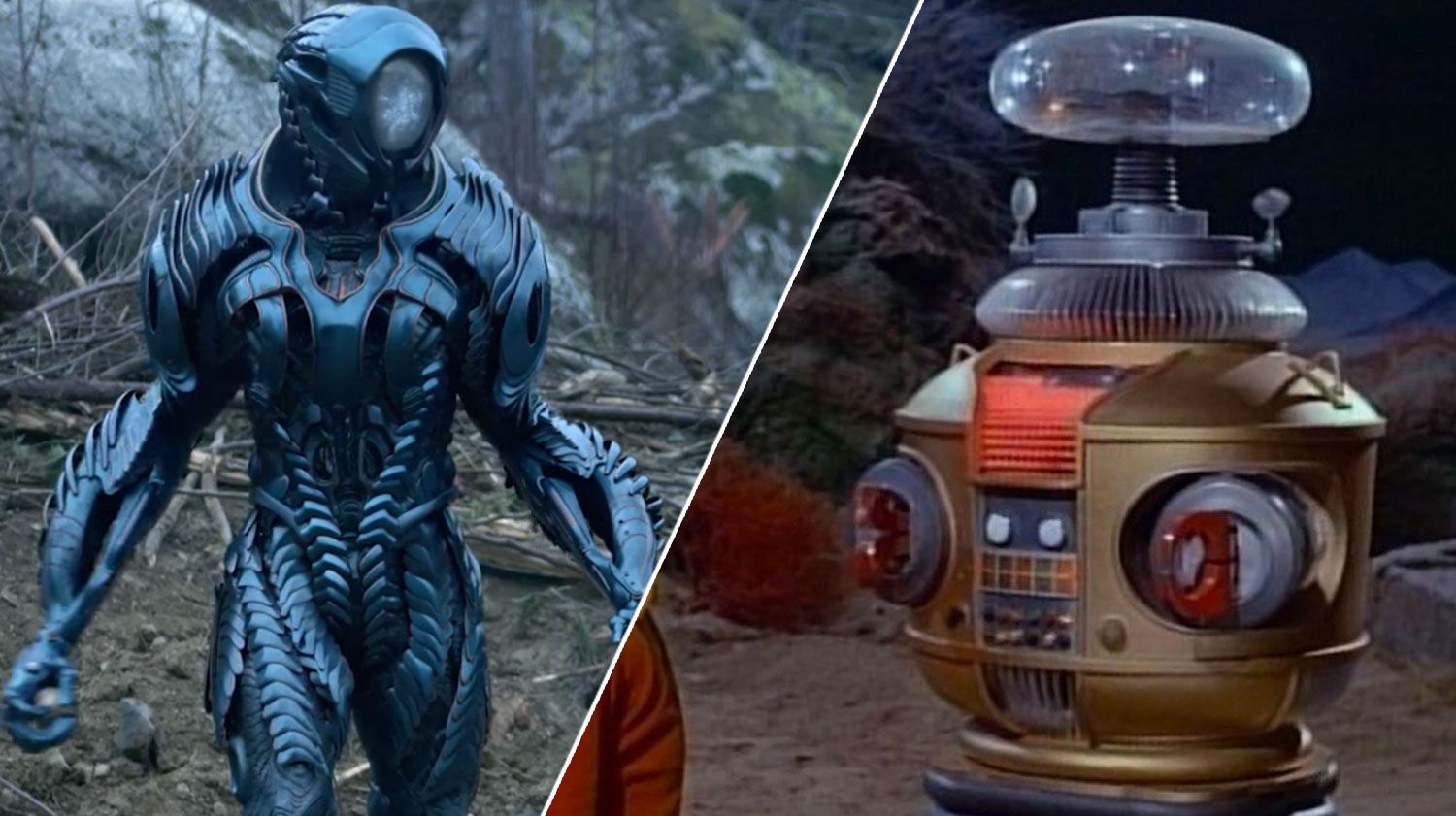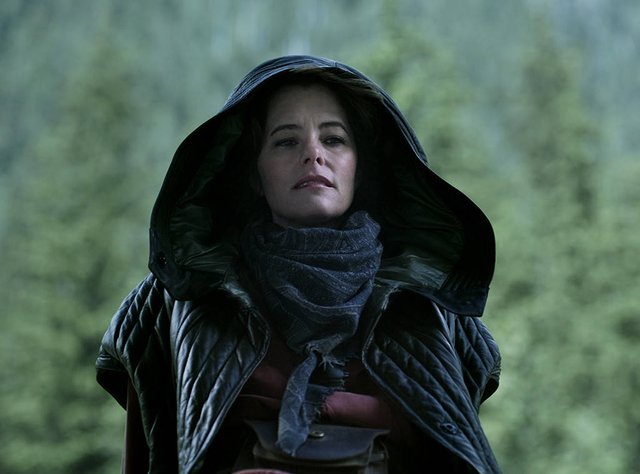Netflix’s big budget Lost in Space premiered last week. I’m three episodes in and fully invested in this family-based scifi adventure.

I can’t lie, I was at least 75% invested when I heard the early cast announcements included Toby Stephens (Black Sails, 13 Hours) as patriarch John Robinson and Parker Posey (Best in Show, Granite Flats) as an absurdly unhinged Dr. Smith. I will watch basically anything that features either of them.
When Don West (played by Ignacio Serricchio, Bones) picked up a chicken and whispered, “No chicken left behind,” and proceeded to carry a chicken in his backpack for the rest of the episode series, I was all in.
The series follows the Robinson clan and fellow survivors of an intergalactic mission to colonize the planets orbiting Alpha Centauri after Earth’s atmosphere is critically compromised by an asteroid strike in 2046. The ship carrying them somehow winds up trillions of lightyears off course and crashes, scattering survivors across an uncharted planet to face all the horrors an unknown galaxy can dish out.

Don’t call the Robinsons a dysfunctional family: perhaps the most refreshing thing about Lost in Space is the presentation of a family that has problems – a rocky marriage rife with parental authority issues, absentee soldier father, kids who have way too much responsibility – but deals with those problems in healthy ways. There’s few things that turn me off of a piece of media quite as quickly as the toxic family: the disinterested father who sneers at his overworked wife, the out-of-touch controlling parents who make their kids hide things, the spoiled kids who act out, etc. Not that these things aren’t representative of real life, but they’re overused and so often mishandled, I find them to be exhausting. I’ll take the Huang’s of Fresh Off the Boat over the Heffernan’s in King of Queens any day of the week. The Robinson family is actually enjoyable to watch. It’s amazing how that works when you write characters who like each other.
Lost in Space has taken a number of creative liberties with the source material, most notably in Robot. Instead of Will Robinson’s (Maxwell Jenkins, Betrayal, Sense8) invention, Robot is a mysterious alien creation that may or may not pose a real threat to the surviving colonists, who also may or may not have been responsible for the crash in the first place. There’s a sense of ominous foreboding following Robot, which fleshes out the character that has traditionally been nothing more than a campy deus ex machina.

Instead of an astrophysicist as he was in the original series, John Robinson is a special forces soldier who has spent so much time away from his family, his wife Maureen (Molly Parker, 1922, House of Cards) is ready to literally take the kids and leave the planet without him. He and his children barely know each other, so much so that the eldest, Judy (Taylor Russell, Falling Skies) is openly hostile to him.
Again, I’m only three episodes in, so they could change this by end of the season, but thus far the show has remained blessedly vague about John’s profession. It’s relevant insofar as expository background for John’s discomfort with his family and his handy dandy survivor man skills. There’s also something charming about this character as the sort of bewildered husband of an astrophysicist (Maureen gets that role!) and father of two child prodigies. It’s a relief that the show makes no attempt to flesh out his military service because judging by Netflix’s other attempts to do so, it would be an un-researched train wreck.
Middle child Penny (Mina Sundwall, #Horror) is a delight. She’s the only Robinson child who takes after her father, favoring efficient problem solving (re: she’s a door kicker) and unfairly saddled with extraneous labor because she isn’t one of the family geniuses. Penny injects the Robinson clan with much-needed – if often as neglected as Penny herself – humor. I’m hoping they devote at least some time to the similarities between Penny and John, rather than focusing solely on all the ways John doesn’t relate to Judy or Will.
Finally, there’s “Dr. Smith.” It is so unusual for a show to feature a female villain who is this kind of non-sexualized sociopath. Posey makes Dr. Smith creepy in a way an older man fixating on a little boy can’t be because that can only be one flavor of creepy. In the space of three episodes, Will’s empathetic nature tapped into Robot and Smith, though it’s hard to say this early on which connection will prove to be more dangerous. Doing the right thing is certainly more difficult for Smith, who looks visibly sickened by how her new human connection with Will is inspiring brief moments of altruism. She is so engaging in her portrayal it’s difficult to look away whenever she’s on screen. Parker Posey is simply always fun to watch and I can’t wait to see the roller coaster she takes this character on for the next seven episodes.

It’s still early so my opinion of the series may change, but thus far Lost in Space is fun, exciting, and updated in enough ways to keep the story socially relevant.